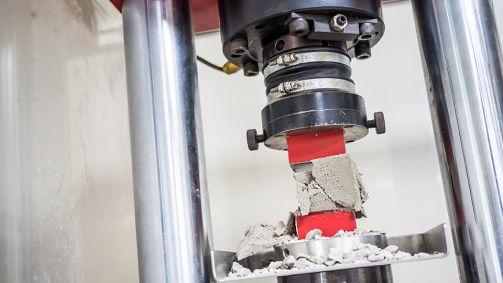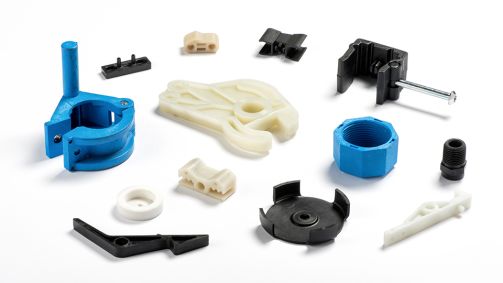Material selection and simulation
Programming your own material models with Ansys
CADFEM Learning Subscription
1x order, 365 days of simulation knowledge at your free disposal
Discover training courses on the topic of materials & material models
Depending on your level of experience, you can take part in basic, advanced, or expert courses.
Free modules
Get a first impression of content, methods & speakers. 30 days access. Free of charge and without obligation.
Available for all eLearnings - simply filter by event type.
 Structural mechanics
Structural mechanicsAnsys UPF: An Introduction to User Programmable Features
Learn how to code, build, debug and configure Ansys UPFs for use in the simulation with Ansys MAPDL and Workbench Mechanical.
Training
eLearning
Level
 Structural mechanics
Structural mechanicsDimensioning and Simulation of Composite Material
Easily evaluating multi-layer fiber composites.
Training
Level
 Structural mechanics
Structural mechanicsEffectively Simulating Seals with a Pragmatic Relevance
Robust computation of the penetration of pressurized fluid into the seal area, through to extrusion
Training
Level
 Structural mechanics
Structural mechanicsPractical Simulation of Elastomer Components
In this training, you will learn how to select and fit appropriate material models as well as to model reinforcements and confined fluids.
Training
Level
 Structural mechanics
Structural mechanicsSimulating the Plastic Material Behavior of Metals
Learn more about the realistic modeling of material behavior in metals and typical components of plastic strength analyses.
Training
Level
 Structural mechanics
Structural mechanicsSimulation with Soil and Concrete Models
Select, understand, and apply material models for concrete, reinforced concrete and soils for foundation and retaining wall analysis applications.
Training
Level
 Concept design phase simulations
Concept design phase simulationsSystematic Selection of Materials using Ansys Granta Selector
Learn how to derive material properties from product requirements and how to find suitable materials in a structured and reliable way.
Training
Level
 Structural mechanics
Structural mechanicsThe Anisotropic Behavior of Short-Fiber-Reinforced Plastics
Importing and calibrating external injection molding data in order to take into account plastic, anisotropic materials in Ansys Mechanical.
Training
Level
 Structural mechanics
Structural mechanicsUser-defined Creep Models Using Ansys UPF UserCreep
Learn how to implement your own creep models in Ansys
Training
Level
 Structural mechanics
Structural mechanicsUser-defined Friction Models with Ansys UPF UserInter
In this course, you will learn how to program, compile and implement user-defined friction models in Ansys.
Training
Level
 Structural mechanics
Structural mechanicsUser-defined Hyperelasticity Models with Ansys UPF UserHyper
Learn how to implement your own hyperelasticity models in Ansys
Training
Level
 Structural mechanics
Structural mechanicsUser-defined Wear Models with Ansys UPF UserWear
In this course, you will learn how to program, compile and implement user-defined wear models in Ansys.
Training
Level
Training on the topic of materials & material models
Our more than 60 training courses on structural mechanics have been thematically subdivided for you. On this page, we would like to present our training courses on the topic of “material simulation”.
- Want to correctly define requirements for your product and select the best possible material from comprehensive parameter data? Our training will demonstrate how you can derive material properties from product requirements and find suitable materials in a structured and reliable manner.
- Do you deal with the simulation of composite materials, elastomer components or metals? Numerical simulation is the key to developing an optimal composite structure without elaborate test series and high reject rates. Our training course will show you how to evaluate multi-layered fiber composites and how to select and fit appropriate material models as well as how to model reinforcements and confined fluids. You will also learn about the realistic representation of metallic material behavior and typical building blocks of plastic strength verification.
- Want to program your own user-defined models for creep, hyperelasticity, friction, plasticity or wear? When standard functionalities are no longer sufficient, powerful tools are available for this purpose. You will also learn how to program user-defined hyperelasticity models in our expert-level training courses.
For more than 35 years, we have been designing and supporting the introduction and expansion of simulation with our customers. With our extensive training and continuing education program, we would like to pass on our experience to you.
Depending on your level of experience, you can take part in basic, advanced, or expert courses.















